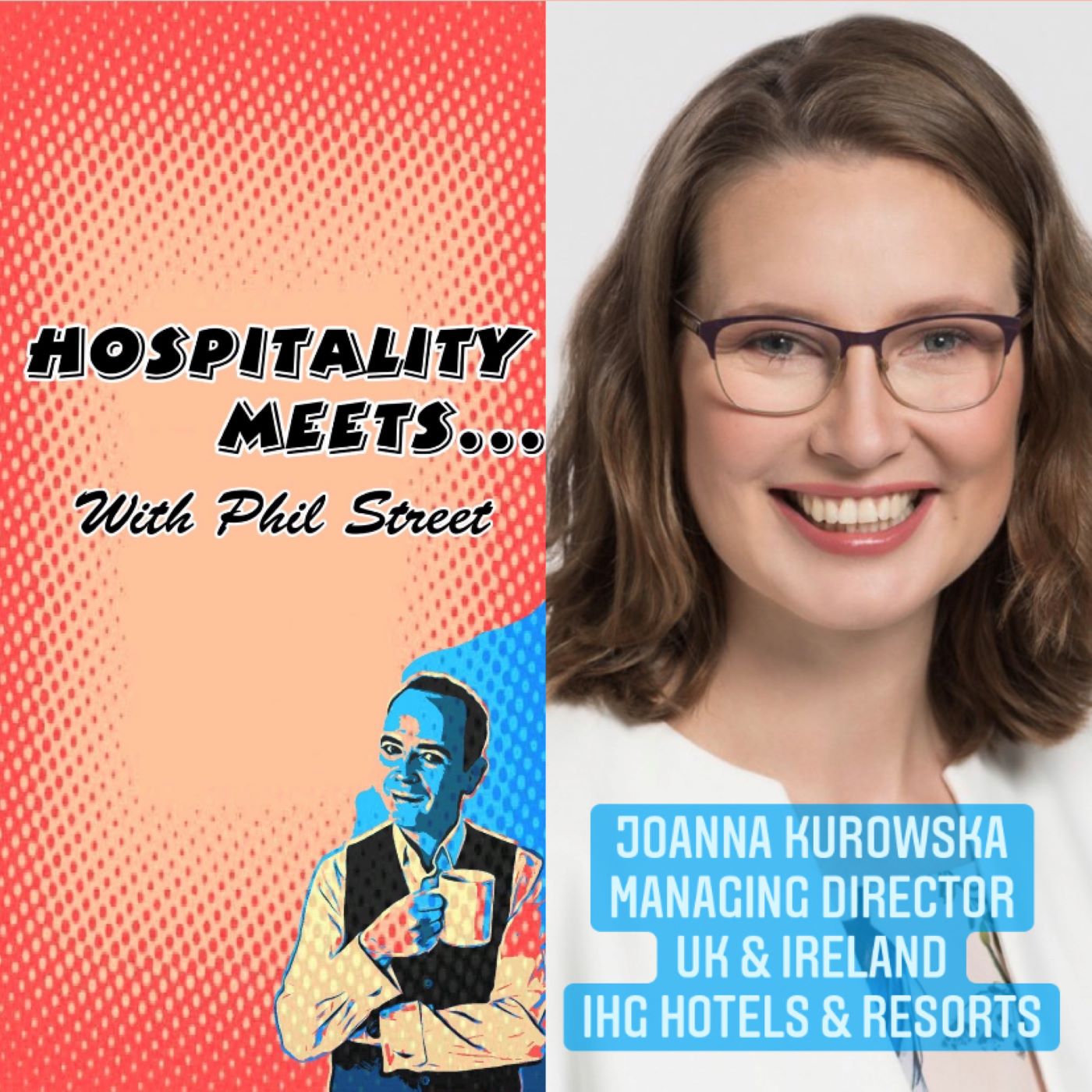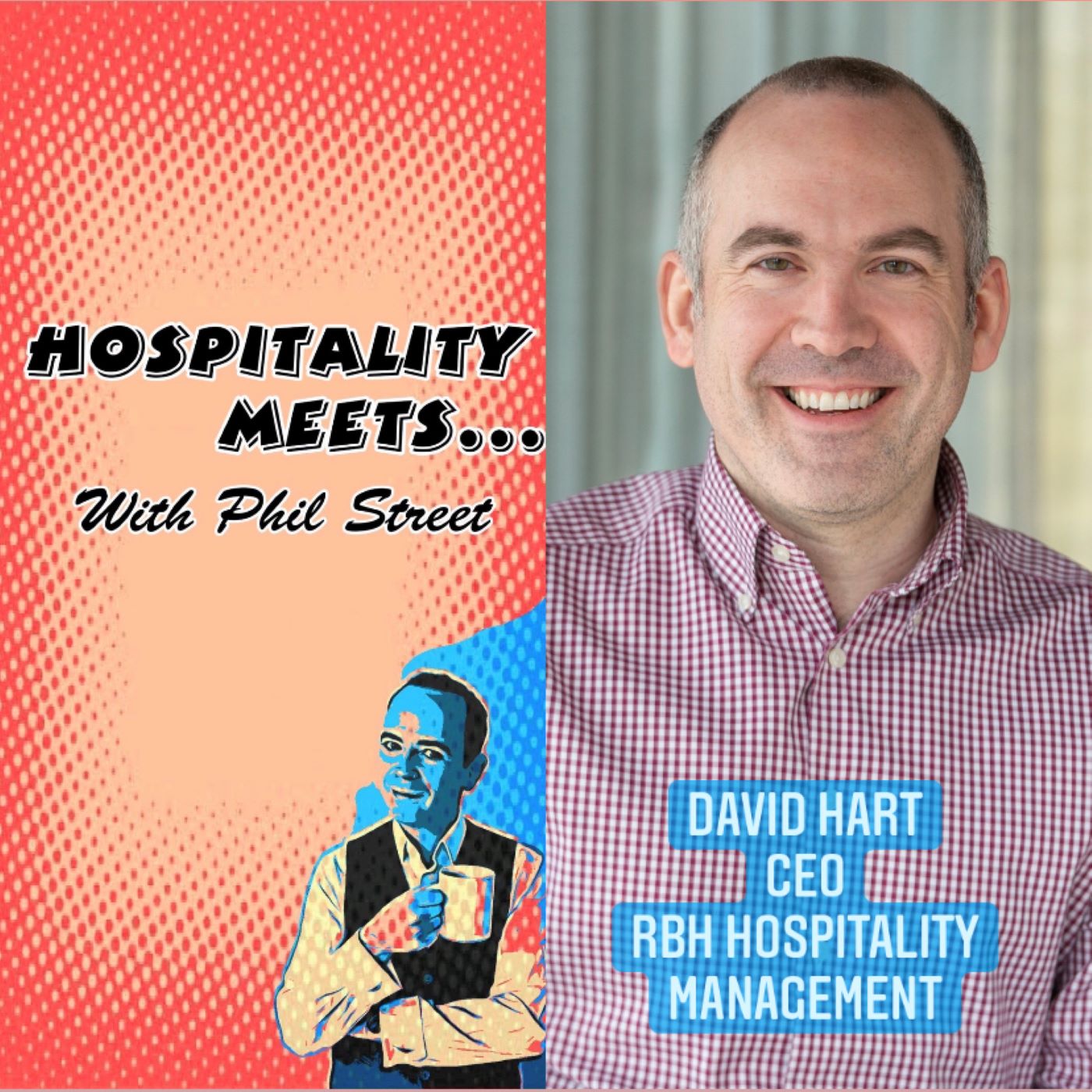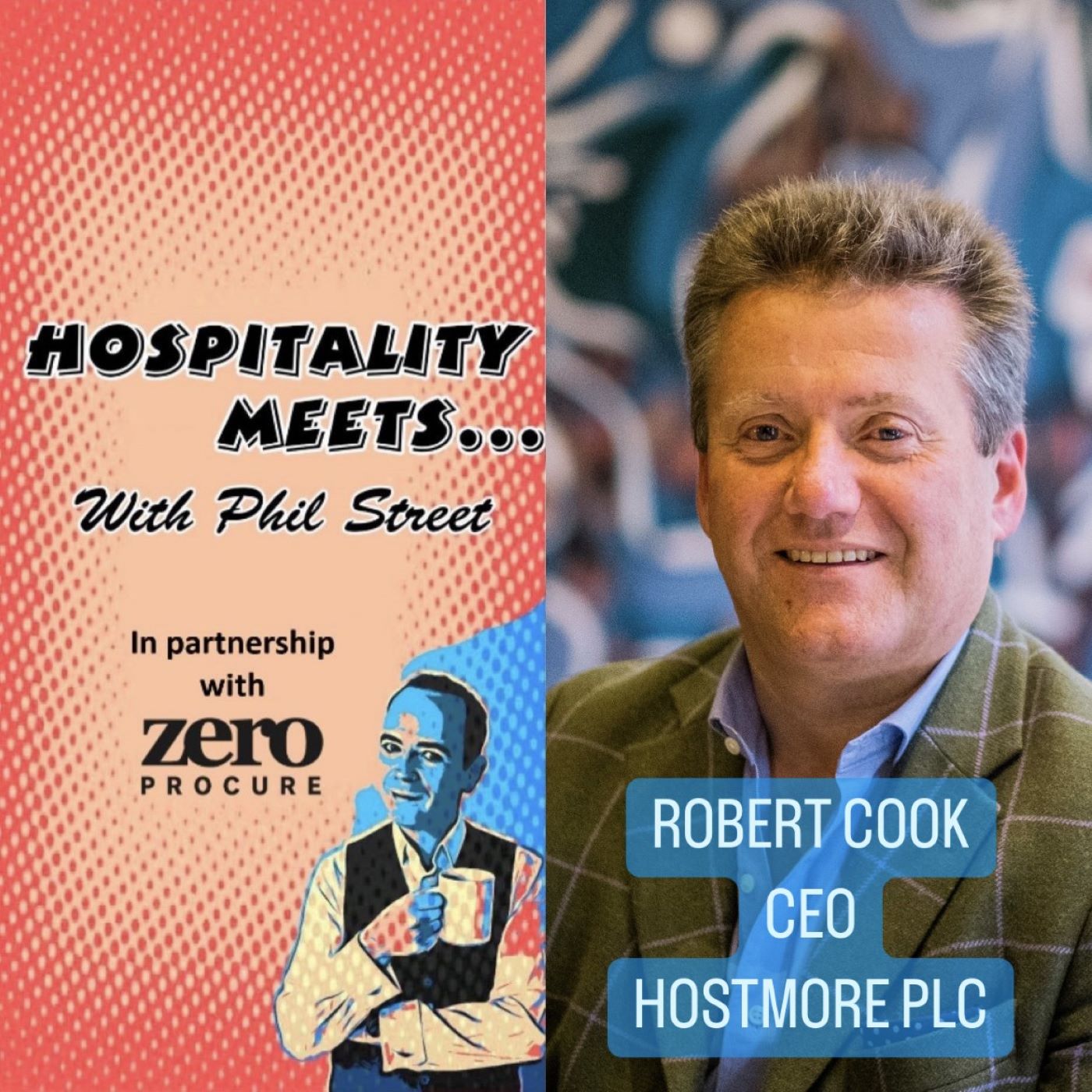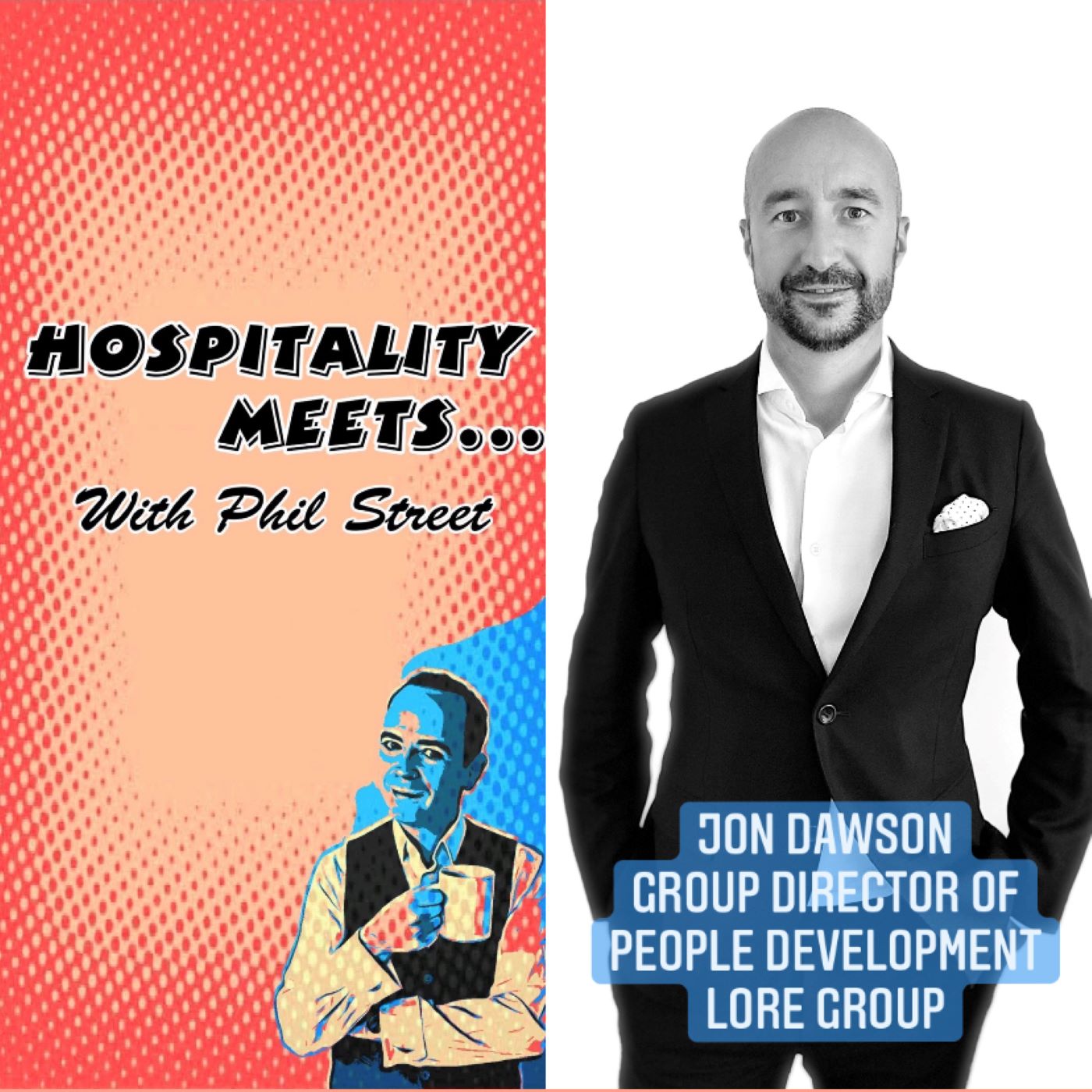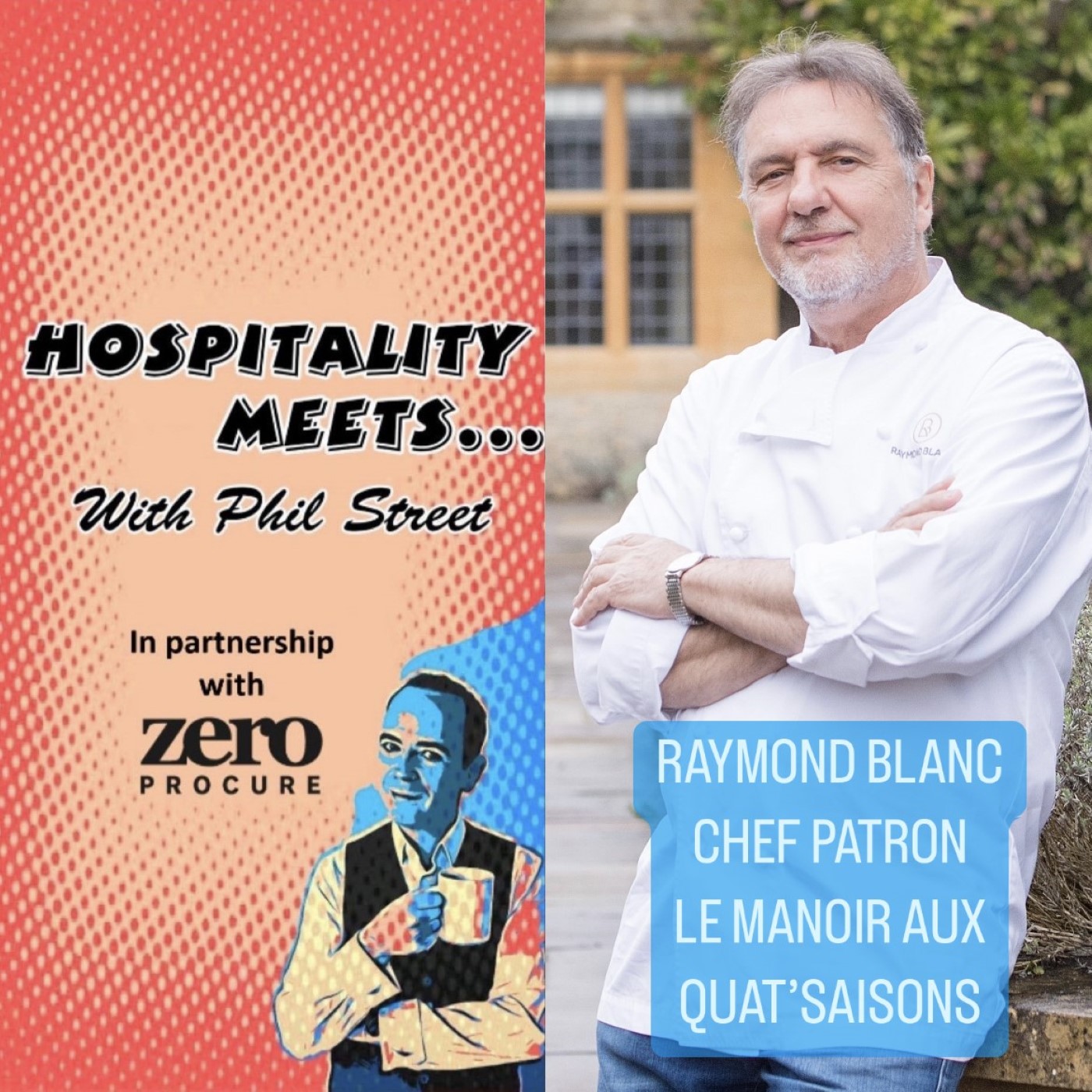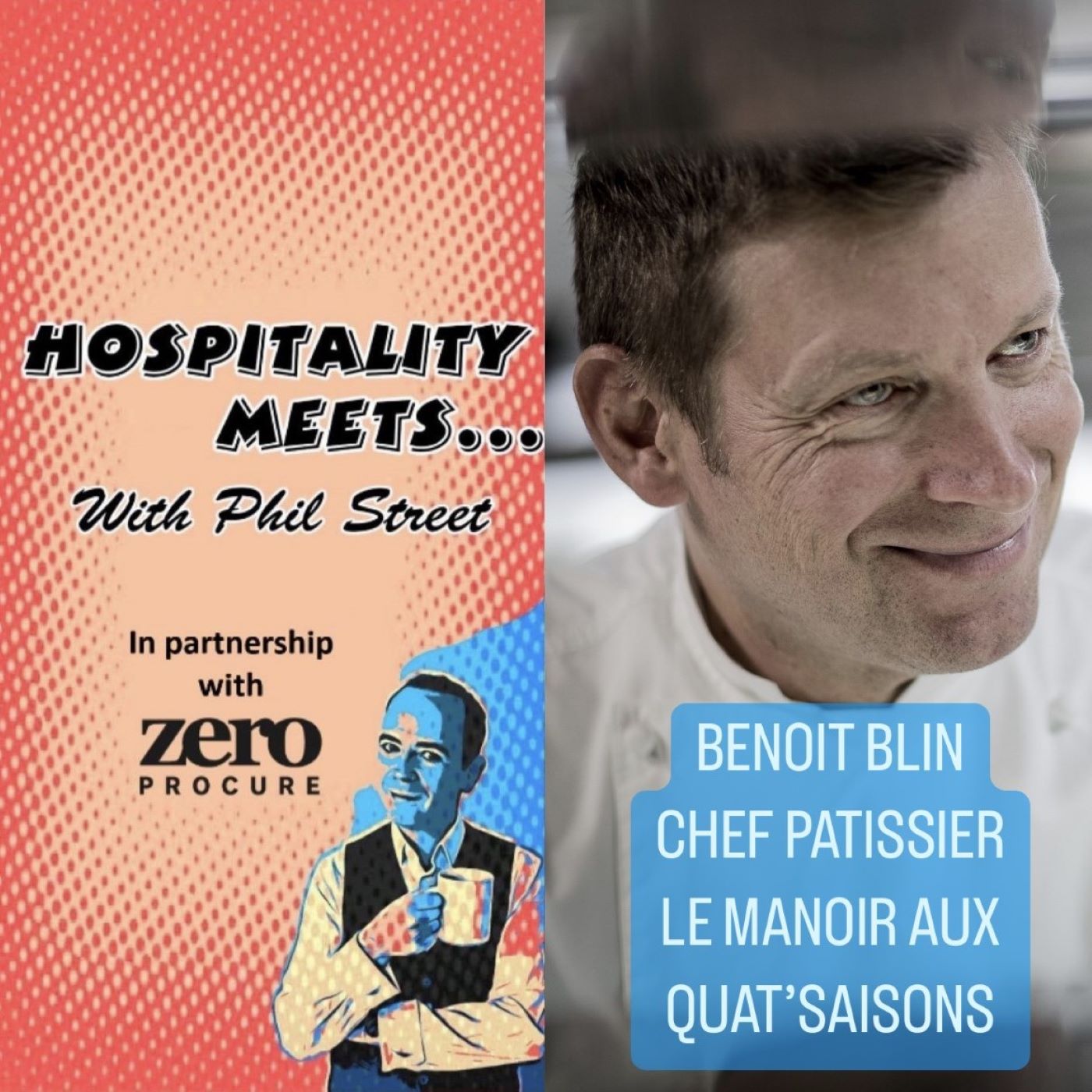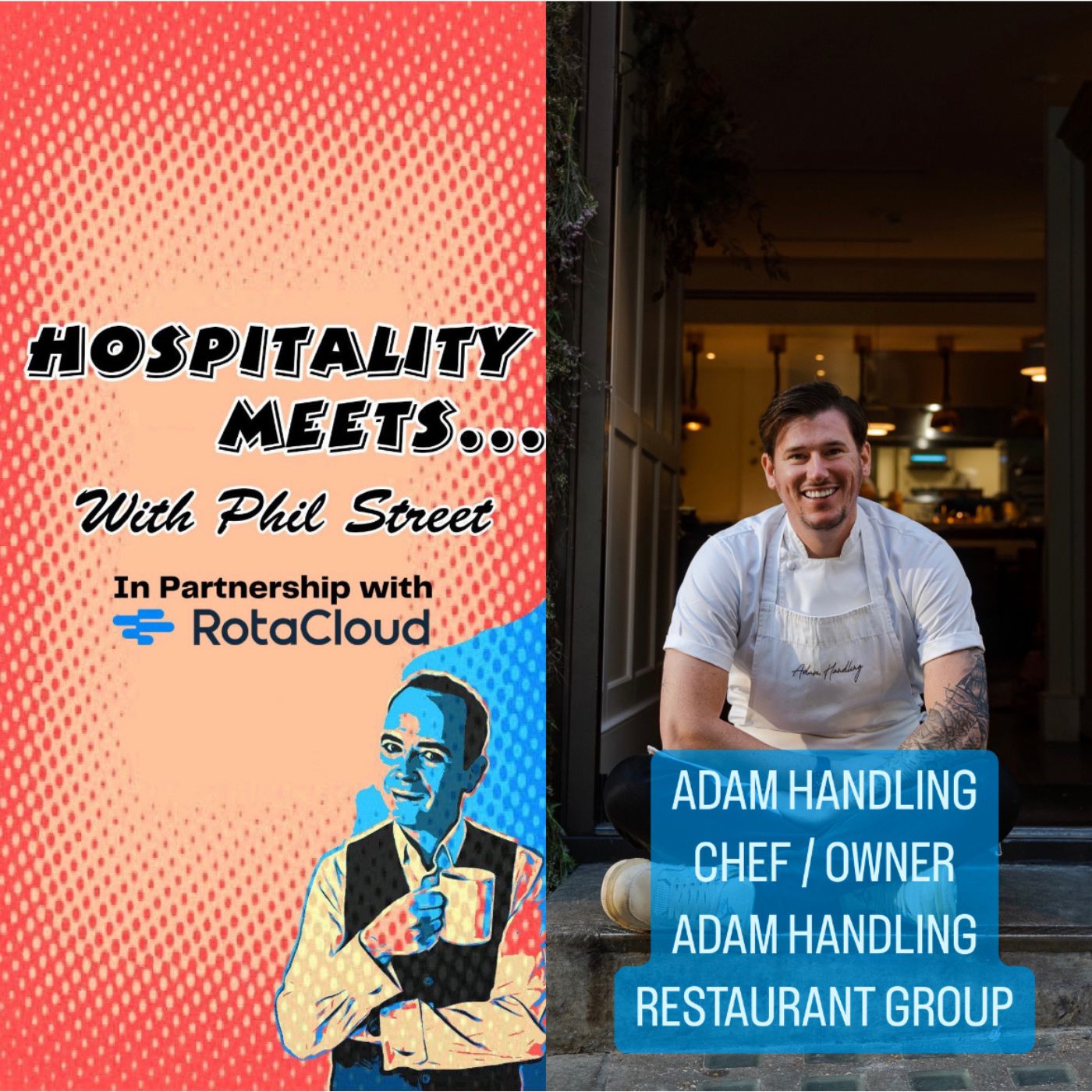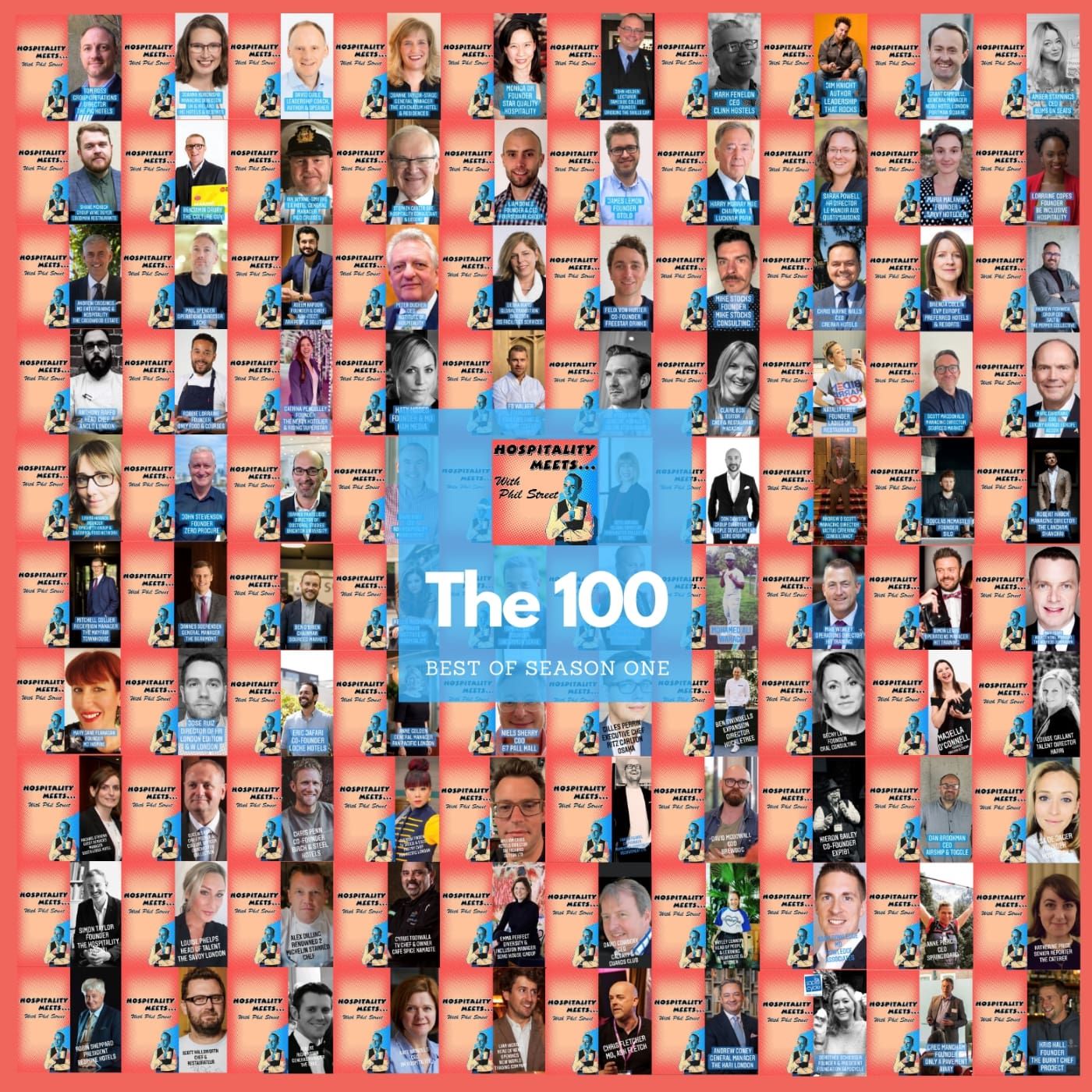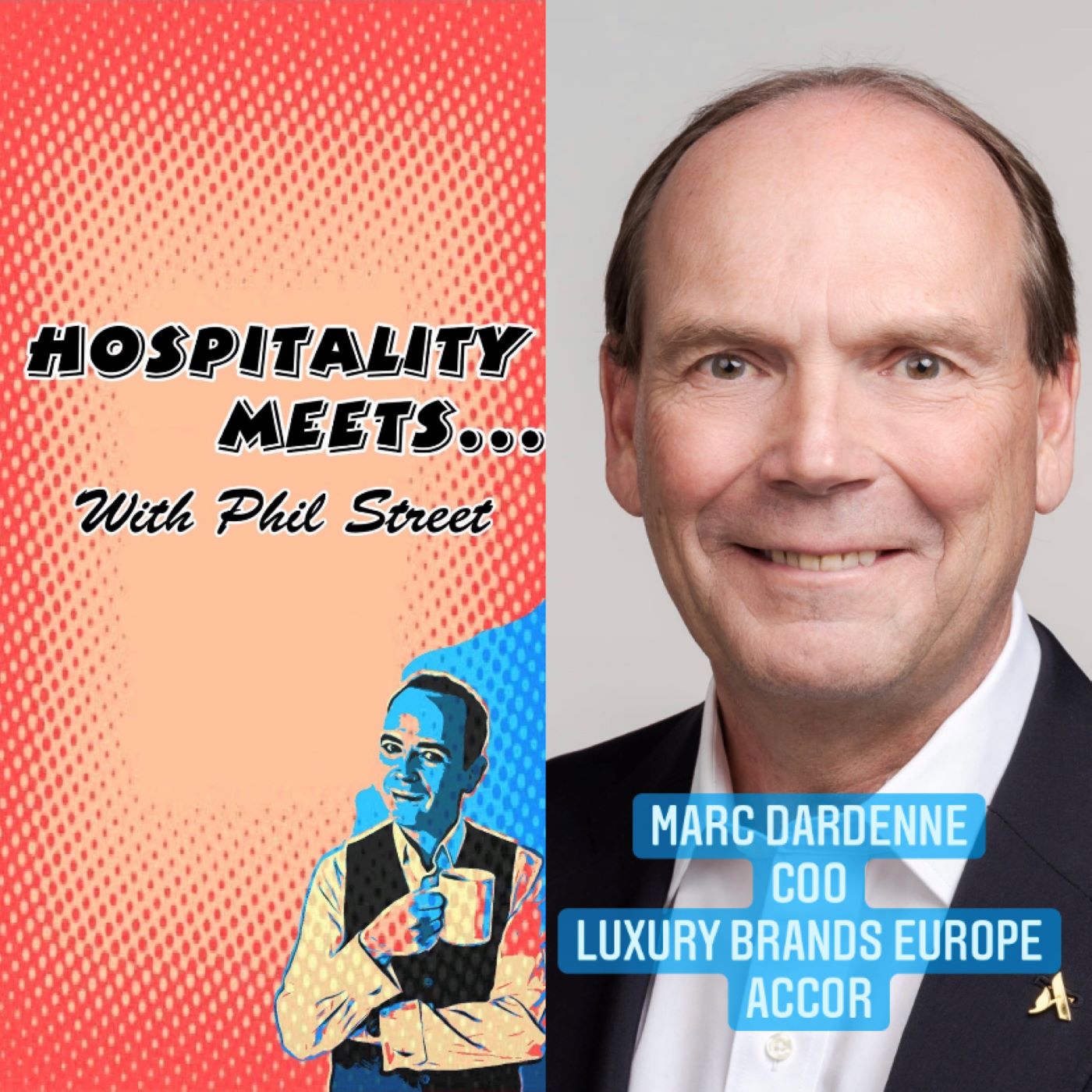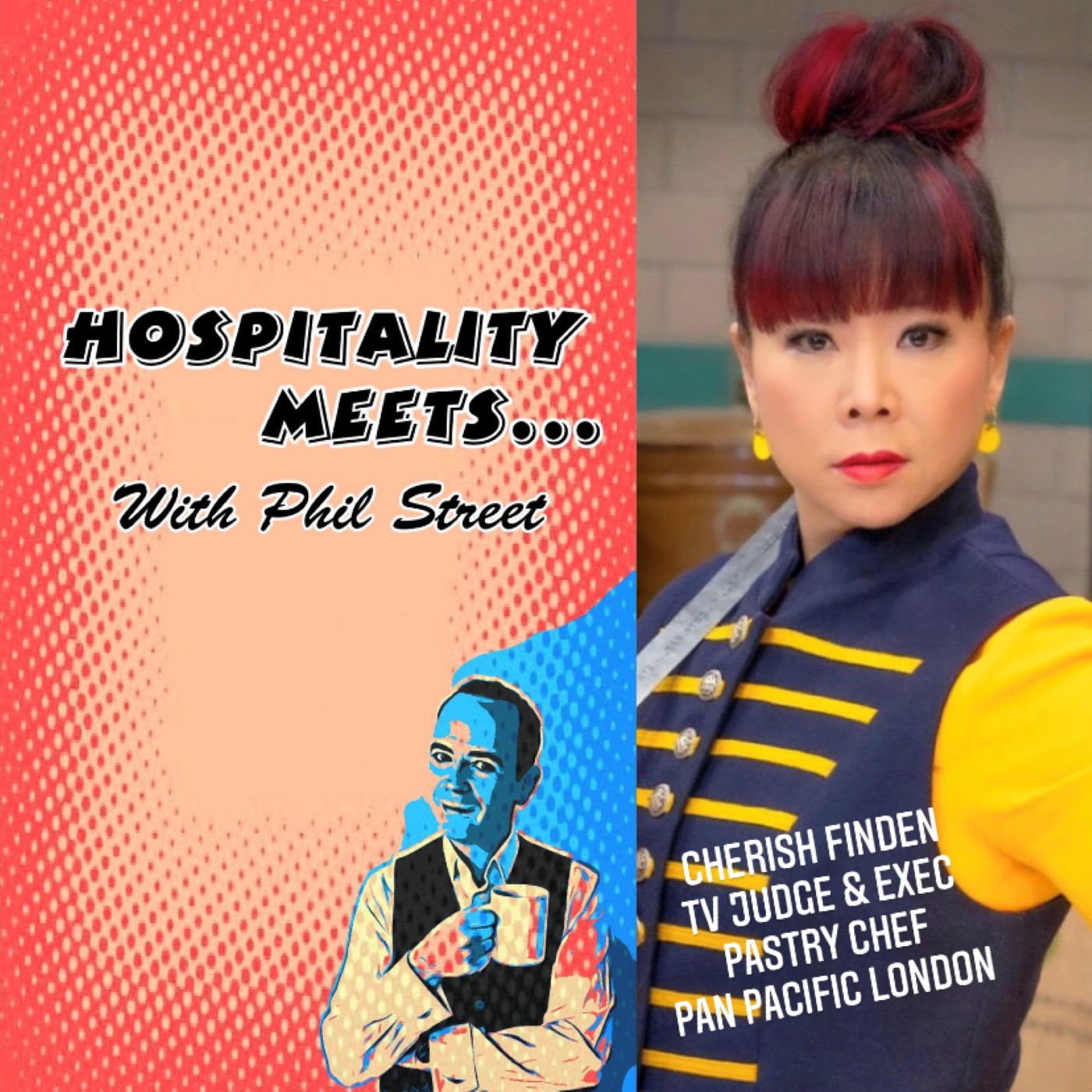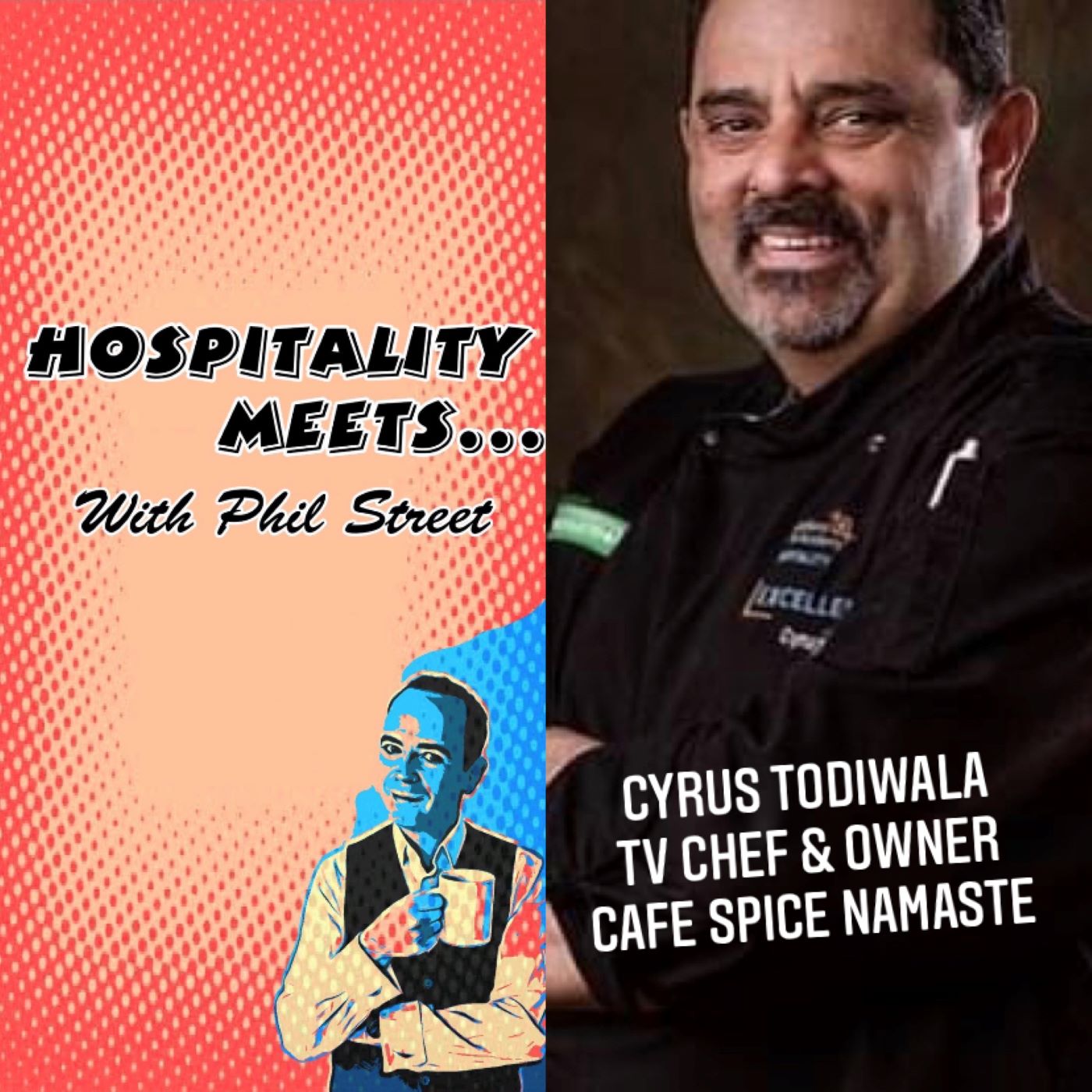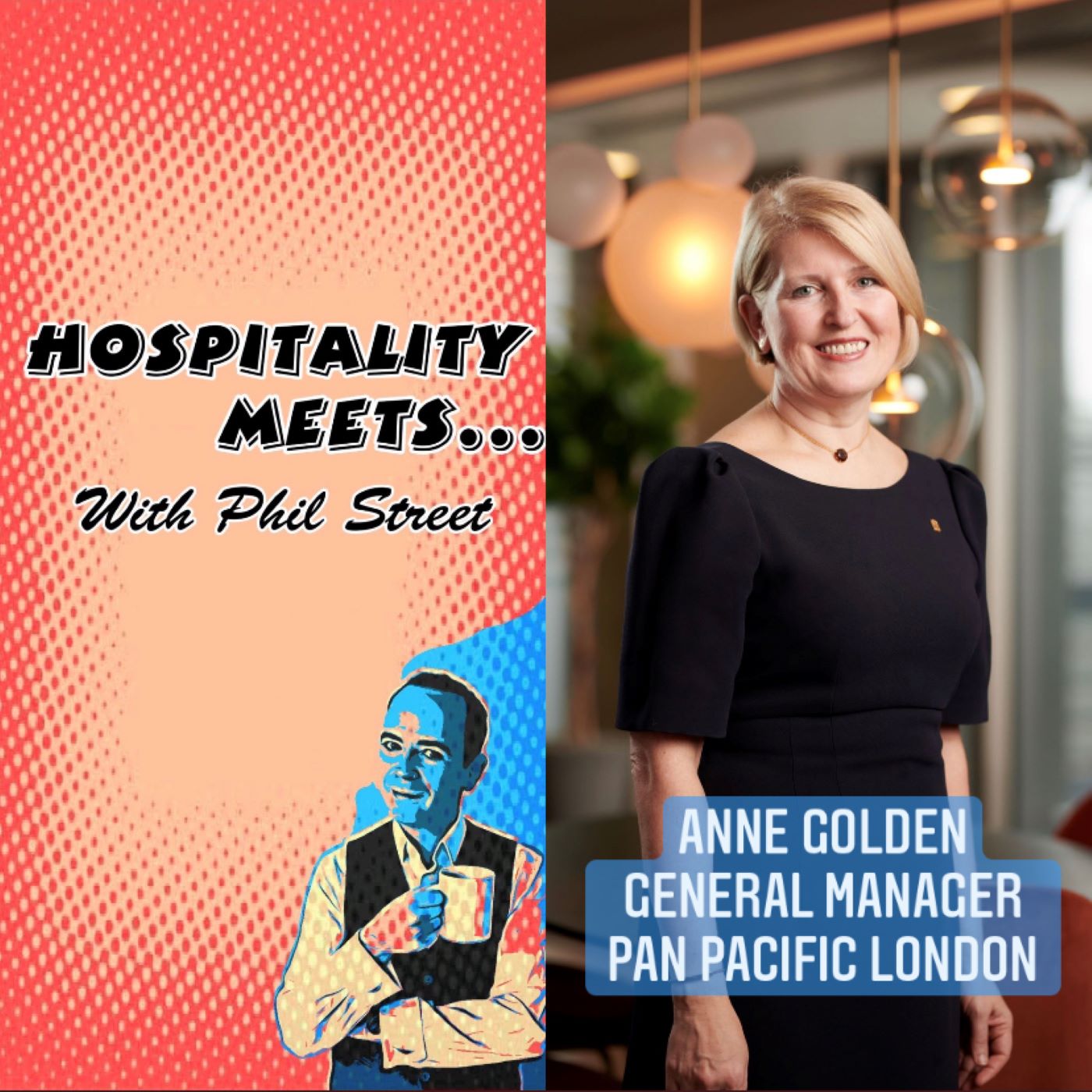#183 - Hospitality Meets Michael Kill - Unity, Leadership, and Industry Advocacy

Welcome to another episode of "Hospitality Meets," where this week we delve into the vibrant world of the hospitality and night time economy. Phil is joined by none other than Michael Kill, the dynamic Chief Executive of the Night Time Industries Association (NTIA).
Michael shares an array of fascinating stories—from being pranked early in his career at Fifth Avenue to orchestrating his own elaborate pranks as promotional stunts. Listen as Phil and Michael explore how such experiences build resilience and break down barriers.
Michael’s journey into the industry was a serendipitous shift from a potentially very different path leading him to discover a profound sense of camaraderie and community. They discuss the quintessential role of problem-solving in hospitality, drawing parallels between past and present dynamics, especially influenced by social media. Michael underscores the importance of unity within the industry to influence governmental policies and enhance representation, touching upon his work with NTIA and the Institute of Hospitality.
Together, Phil and Michael reflect on the multifaceted nature of the hospitality industry—from unglamorous tasks to major political manoeuvres—and its power to shape character and personal growth. Tune in to hear about Michael's hands on experience, his advocacy for collective industry success, and his strategic initiatives that aim to elevate the industry's stature on both national and international stages.
Don’t miss out on this insightful conversation brimming with practical wisdom, laughter, and a touch of nostalgia. Cheers!
The Guest
With several decades of experience working within independent, corporate and public sector environments at executive level, Michael specialises in Marketing, Operations, Licensing, Logistics and System Implementation. With significant senior management roles within Luminar Leisure Plc, The Drinks Group and the University of East Anglia and now as the Chief Executive of the Night Time Industries Association, Michael has been exposed to a considerable range of businesses within the night time economy business sector.
NTIA - https://ntia.co.uk/
Instagram - @ntiaofficial
X - @wearethentia
The Sponsor
Today’s episode comes to you in partnership with RotaCloud, the people management platform for shift-based teams.
RotaCloud lets managers create and share rotas, record attendance, and manage annual leave in minutes — all from a single, web-based app.
It makes work simple for your team, too, allowing them to check their rotas, request holiday, and even pick up extra shifts straight from their phones.
Try RotaCloud’s time-saving tools today by heading to https://rotacloud.com/phil
This podcast uses the following third-party services for analysis:
Podcorn - https://podcorn.com/privacy
Phil [00:00:00]:
And a huge hospitality meets. Welcome to the man with the most aggressive name in the whole of hospitality, Michael Kill.
Michael [00:00:06]:
Thank you. Hi there.
Phil [00:00:08]:
I couldn't resist.
Michael [00:00:10]:
That's a new introduction. Normally I always have the quip about it being a fantastic rugby shirt. So, yeah, as you can appreciate, I tended to get avoided when I was in the scrum for lots of different reasons. So pleased to be on. So thank you for inviting me.
Phil [00:00:26]:
You're very, very welcome. How are you doing anyway? How is life?
Michael [00:00:30]:
Yeah, life's really good, actually. Stressful, as you can appreciate. We've got loads of things going on, but, yeah, you know, I'm feeling sort of invigorated. I've just come off a week off, so invigorated, driven, tenacious. Usual things of the team when I return. Hate of the fact that I've had a week off, which.
Phil [00:00:49]:
Damn those ideas.
Michael [00:00:51]:
Yeah, well, I've come back with a script, script book full of ideas on what we can do next, which they're all going, oh, no, no, not new. Nothing new. So. But, yeah, no, no, come back with a. With a bit of energy and a bit of drive. So good, good stuff.
Phil [00:01:04]:
Yeah, well, what you're doing, which we'll obviously get into at some point through the midst of the conversation, is massively important. But, yeah, just tell the world what it is that you actually do for a living.
Michael [00:01:13]:
Like, well, I'm the chief executive for a trade organization called the Nighttime Industries association. So we represent about 10,000 individual businesses that operate between the hours of 06:00 p.m. and in the morning we do a lot of lobbying and activism and representation, advocacy around the importance of nighttime economy, how important it is to the high street, how important it is to youth culture, being one of the biggest employees of under thirties, and also how important we are to the national economy, community culture, and also inclusivity, you know, and that really, really for us, I think we fought a long time to highlight the importance of our sector as a whole to central government. And the pandemic has given us an opportunity and a platform. But we need to continue that education and that narrative.
Phil [00:02:05]:
I think that's the key word at the moment, because education, because it definitely feels like at times, and this is just the outside looking in, or maybe the inside looking in, I don't know. Whichever way you look at it, we're all banging a drum and we're all real, highlighting how important the work and the sector is to the wider world. And yet sometimes it just feels like that's not really been taken on board.
Michael [00:02:29]:
I think it is. I think the one thing that probably the structure of politics is not as easy as everyone thinks to manage. So, as you can appreciate, during the pandemic, we were given the opportunity to obviously get some insight into not only the cabinet, but all the different government departments that have influence over our sector as a whole, from transport all the way through to home office, treasury, etcetera. But what was very apparent is the disparity in knowledge and representation within all those different sort of facet departments. So we worked. We've worked very hard not only representing from the ground up, but also educating at the same time. And one of the examples that we gave was, you know, the government took a long time, you know, both devolved governments as well as Westminster to evaluate what a nightclub was. And if you just take one of that one category, you know, did it sit with dcms? Because there are certain electronic music clubs that sit within the cultural remit, and then you've got the social entity of clubs, which tend to be your bread and butter sort of prisms and things like that, brand wise.
Michael [00:03:28]:
So there's been a long standing responsibility over the course of the last three or four years to really start to work with government and allow them to really understand what nighttime economy looks like. And we look at it as an ecosystem. They look at it from the business and industry or business and trade department as individual categories of business. But I don't think we fall suitably in one area. So we're dealt with as hospitality, but the nuances around some of our sector are very, very different. So we've had to really battle to be able to stand on our own 2ft and have an independent seat to the table, rather than being folded into either live music in terms of culture and electronic music, or hospitality, where nighttime economy has got some very different nuances in terms of the approach and challenges that we faced. For instance, post 11:00 getting home and public transport and safeguarding, etcetera. So there's lots of things that differentiate us, there are lots of things that are consistent between the two, but I think the government are now starting to understand more.
Michael [00:04:27]:
But it's been a journey, let's be honest about it.
Phil [00:04:29]:
Yeah, nicely put. Yes, but I think that's an interesting thing that you highlight, actually, because I think we're probably all very, very quick to judge that nobody listens and all of that kind of thing. But I equally will always come back to the fact that none of us would probably really want the job of being in government. Politics, it's thankless. I think you make one decision that makes somebody happy and that pisses off somebody else by doing that. So you can't ever win. I guess all you can do is keep banging the drum in terms of how important it is that this industry is recognized as to its importance.
Michael [00:05:10]:
The other thing is we need to educate ourselves on how the, the political infrastructure is. And that's one of the things that we weren't good at. You know, we've got an accountability in terms of educating government about our industry as well. I mean, when you talk about the FA, they're fully ingratiated within government because there is an interest there and football is something that, you know, they, they look at and they've educated and they've had a long time to sort of create that structure and understanding around it. You know, I think one of the civil servants said to me, I said, I wish ministers would understand that a nightclub is not like Saturday Night fever, you know, which was an interesting comment. And when you come back and you think to yourself, no, we've changed so much. We're so multifaceted. So we've got a responsibility as an industry to educate and we're doing a lot of work within those environments.
Michael [00:05:54]:
But, you know, that's something that we've got to take responsibility for. But they're interesting in understanding and we're making some big headway and we're now starting to get at the head of the table. Two weeks ago I was sat in number ten delivering our sort of manifesto for nighttime economy to the head of strategy for the cabinet, the prime minister's office. So we're starting to really get a strong position and it's not an overnight process. You know, it takes time. It's not a simple. Most of the people in our industry don't understand it fully and we're expecting people to pick it up, but we also need to understand who's representing. You know, there's a lot of comments about, oh, we're not being heard.
Michael [00:06:30]:
We are being heard. But when you sit in a call like myself as a CEO with 50 other CEO's of trade bodies from all different sectors, you really start to understand how difficult a job is politically and how many mouths they've got to feed and it's, it's who shouts the loudest, who has the biggest economic input that sort of comes back and that's, that's just reality.
Phil [00:06:52]:
Yeah, yeah, yeah. Well, I mean, God, how your career has taken off. Two weeks ago in number ten today on this show. I mean, you've made it, Mike.
Michael [00:07:01]:
I've definitely. I've actually been looking forward to this podcast.
Phil [00:07:04]:
Bless you. I hope I don't disappoint.
Michael [00:07:06]:
No, not at all. It's like you say, I like to be able to talk about what we're doing and where we are and where things. Because sometimes people just like you say, it's very flippantly, say we're not considered, we are, but we've got a battle amongst us and it takes all of us to stand up and talk both locally and nationally, to start to get the message through.
Phil [00:07:25]:
Yeah. Hear, hear. And I think that I've actually remember speaking to Kate Nichols about this, actually on the show all the way back in one of the early episodes, which is four years ago now. Blimey. And we were talking about the fact that actually if you ever, if you need to make some kind of meaningful change, then actually the skill is, is not alienating people. The skill is keeping everybody at the table because you, you need to be able to wear different hats to satisfy different people at different times and all of these things. And that's an art form. It's a, it's a real skill to be able to do that because everybody's got perhaps their own interest within that as well.
Phil [00:08:02]:
And I don't mean that specifically individually. I mean, business to business is they're looking after the business first.
Michael [00:08:08]:
Of course they do. I mean, you've got. I have challenges with trade associations that work around us and how much they feel they need to be complicit for them to get messages through and how we feel that we don't want to be complicit because I want to make sure that the cause is front and center. And I'm not going to win friends and allies by sitting there and just pandering through to retain relationships, which is probably one of the challenges. But we also have those challenges where you get mixed messages. For instance, the corporate world is at the behest of shareholders, whereas independents are at the behest of individual businesses. And sometimes the narrative presented by the shareholder fraternity kind of creates a disparity in terms of the reality of what's going on at the ground. So, you know, we've got a lot of battles that go on internally within our sector as well as a lot of battles that go on in terms of representation in central government.
Michael [00:08:57]:
And that's, you know, that's just par for the course. But people don't see that those independent businesses that make up 77% of our industry just go, well, they're not listening. The challenge we have is we do need to stand together. We all need to sort of really understand what the narrative is and what we're representing and what the asks are for us to be consistent. But you know, I do sort of highlight the fact that I work very hard making sure that the asks are front and center, not to compromise whatever we're driving or whatever. We're asking for a relationship with central government or the potential that we would lose that relationship because I just don't think it's authentic and I really do have a bit of a challenge with it.
Phil [00:09:37]:
Right, yeah, yeah, yeah. Well we'll talk about this again I think, later in the. In the conversation. But actually what I also want to focus on a little bit is how the hell did you end up doing this? Like, you know, because in some ways from the. Again, from the outside looking in it feels like a job with massive responsibility. But obviously I don't think you land there by accident. So take us all the way back to the beginning of your career and kind of walk us through how you've ended up here really.
Michael [00:10:06]:
I mean I've been really honest about it. I'm an ex failed rugby player who loved the sport, had a serious injury that stopped me playing the sport that I wanted to do. I then went on to university to do a physiotherapy degree and sort of dropped out somewhat early from that. I then got a job on the south coast which is where my family was working in a nightclub. I started off on the floor and then I collecting glasses like most people do, work my way up to the bar and then I did a bit of hosting and promoting and that was in the sort of corporate fraternity of the old rank leisure and northern leisure which I moved on to. And then Luminar. I then owned my own venue. I've been a festival organizer.
Michael [00:10:45]:
I was a drum and bass promoter for years. I ran one of the biggest UK garage events in east London and you know, my career sort of developed from there. I was then the commercial director for a student union in Norwich which is one of the biggest sort of student union, 5000 capacity license space, came away and then started working for a company called the Drinks Group. And then what happened was I worked within the vibe bar in Brick Lane which is quite a well known bar which is right on the cobblestones where they do things like Brick Lane music festival. So right in the middle of where really all the creatives were for London. And I worked through 2012 where the Olympics was on, so learned a lot there very, very quickly because that was quite an intense period. And then from there, really had an opportunity. I was working in the background with the NCIA, more on the infrastructure side as things were moving forward.
Michael [00:11:34]:
And in the end, the opportunity came up to step forward as a director and then a CEO and probably about a year and a half before the pandemic kicked in. And I think it was a year and a half in the pandemic of me being appointed as a CEO. I was then thrust into the limelight. And it's make or break time. You either open your mouth and you say it constructively and you survive and you take each opportunity in terms of the media and what you're doing in terms of central government representation with the moment that it could be your first and your last. And that's what I've done ever since, structurally sort of built and grown phenomenally over the course of the last four years. And, you know, in a really short period, that's really been our, you know, our journey, my, you know, we've got a very close knit family of people that have a huge amount of respect and love for this industry and work for it and the trade association because they love and want to be part of it. And we share that mantra.
Michael [00:12:30]:
We just want to give back. And, you know, that's what's sort of brought us to this space. But, you know, we. We work day and night. We speak to people. Whatever time is needed, we manage from the ground up. We don't grab it from the top down, you know, and we speak from the perspective of 30 years in operations. So, you know, we don't talk from a policy perspective.
Michael [00:12:51]:
We talk very clearly from someone who stood on the front door, served a pint, cleaned up, you know, bars, you know, had to deal with toilet blockages and all the things that, you know, we don't talk about in this industry, but, you know, our huge experiences and character builders for the future. So that's kind of where I've come from. I hope that wraps it up in a really simple but succinct way, although it sounded.
Phil [00:13:12]:
Yeah, yeah. Thanks very much for coming on the show. Thanks very much, Mike. Cheers. You're absolutely right. We never talk about the dark arts of hospitality, do we, in terms of the stuff that goes wrong, like toilet blockages and things like that, because it's not especially glamorous. But I remember seeing a talk actually given by the, a lady called Kelly Rickson, who is the current chair of the IOH but is outgoing. I think she will do her time and move on shortly.
Phil [00:13:40]:
But she's also a friend of the show. Talking to her about her story was quite, quite remarkable. But I remember seeing her give this talk about finding the fun in everything that you do, you know? And so this perception of sticking your head, it's not sticking your head down a toilet. Hopefully nobody unblocks a toilet by sticking their head down it. But, you know, you, even when you're doing the jobs that are not considered to be glamorous but still bloody essential into how stuff does, it's actually a really, it's a great gift to be able to still be able to find the fun in the moments that don't especially look like they might be fun.
Michael [00:14:13]:
Without a doubt. Listen, I've been subject to pranks. I mean, I remember, I think, when I first started working in the industry at a venue called Fifth Avenue in Southsea, which is now a Tesco, I think, on the south coast. And I remember within the first few weeks, one of the managers, because you were so intent on making sure that you secured that job, and they turn around and gave me, I think it was about 15 black plastic bags and a load of stickers. And they asked me to collect the air every half an hour and put it in a room out the back and label it per half an hour for eho. And as a young influenced individual, did it, did it because I just wanted to please someone. And the reality was it was a standing joke. It broke down some barriers.
Michael [00:14:57]:
You know, I was able to laugh at myself alongside everyone laughing at me. Me. Because being taken through with a room full of air filled black bags with labels every half an hour was clearly, you know, the standing joke for sort of betting people in at the time. And, you know, that that sort of thing goes on forever. You know, in your mind. I always draw back to the fact that, you know, while I appreciate I'm here, I've also gone through a lot of the things that people have gone through in this industry, and it's a character builder. There's no two ways about it. You know, it builds resilience, it builds entrepreneurial spirit, it builds creativity.
Michael [00:15:30]:
It's cheeky. You've got to learn to pivot and work, you know, really hard and find the avenues and solve and, you know, so I've taken a lot from this industry, and definitely the role that I'm doing now allows me to give back somewhat.
Phil [00:15:42]:
Yeah, I mean, you raise a great point. Actually. We probably don't talk about this enough as to. One of the benefits of coming into this industry is the problem solving capability that you walk away with once you've done some time on the front line, as it were. I think I'm on your page with the pranks. I think the. They're kind of almost like a right rites of passage, aren't they, really? When you join somewhere, I think, as you say, they highlight that one. You can laugh at yourself, which I think is massively important in this business.
Phil [00:16:09]:
Well, massively important in life, I think, but. And, yeah, just. You triggered memories in my own life as well. On cruise ships, we had some belters whereby, you know, you get somebody who comes on board for the first time, and we used to create these mock electric bills and slip them under their cabin door, and then they'd come into the wardroom or whatever, the crew bar, and go, does anybody else get this electric bill? And everybody is, of course, well drilled. Yeah, yeah, yeah, yeah, yeah. How much was yours? Oh, yeah, it's like 55 pounds or something like that. But I thought that was all included. No, no, no, it's, you know, it's all about your usage and all that, and people just buy it and then ultimately, you know, they learn.
Michael [00:16:52]:
Well, I just love. I mean, I go back to the sort of era of creativity. And I remember I used to run a night years and years ago, about 20 years ago, called only salts and geezers, and it was a cheeky student night. And what we did was we printed a thousand replica parking tickets on the yellow thing with. On the back. And what we did is on the day and the night, we put them on every single car in the town. And it was. It was a prank.
Michael [00:17:18]:
And what was happening, it was the greatest promotion you can think of, because all they were doing is, it's a prank. And then they would take it off and then go and put it on their mace car, so it literally promotes it for you. And there were things like that that. I just loved the idea of that creativity. I mean, I think one of my friends, after I left, then wrote a call up letter to the army at the time and then sent it out to the database about meeting them at the venue, and they were just cheeky things like that. I just love that entrepreneurial sort of spirit of trying to sort of entice or access people in different ways. And I kind of. In some respects, we've lost the physicality of that with social media, which, you know, people are, you know, they're drowned out by this white noise and, you know, it's great sometimes to receive a letter other than a bill these days.
Michael [00:18:02]:
So, you know, I miss those sort of times, you know, which I think were great sort of assets and role plays and different things that we did to generate interest and disseminate information.
Phil [00:18:16]:
Yeah, I'm guessing like that mock parking ticket is almost. Almost like the equivalent of its time of something going viral. Right. Because, you know, you people were paying it forward, you know, moving it on to the next and you're not. You're not having any effect on that whatsoever. You're just allowing it to create this life of its own.
Michael [00:18:36]:
Yeah, I mean it's exactly what it is. It's that physical virality that, you know, we're all trying to create with videos now. It's just so overwhelming when you talk about the physicality of it, slightly different. The accessibility of, you know, trying to create that viral moment is much broader and, you know, everyone could do it. No different than record labels in the day used to take time through white label and those sort of things for people to go out and play your record. These days it's produced and released online and the bridge between production and release is much, much shorter. So we've all been affected by the timelines within our industry at every level. So listen, I'm so invigorated by our industry at every moment and I'm always so keen to hear about new and exciting proposition direction and, you know, social, you know, the competitive socializing side is a really interesting one for us at the moment.
Michael [00:19:28]:
So, yeah, there's lots going on, but it's a real sort of hive of sort of learning, I suppose, when you talk about it. Sorry.
Phil [00:19:35]:
Yeah, yeah, yeah, no, that's fine. We're in a live environment. That's life, that's business. I just want to take you back a little bit to the beginning because for all intents and purposes it sounds like you've kind of arrived in this industry a little bit by accident, really, because your. Your first focus was on becoming a rugby player that was taken away from you, which, you know, that sport. Right. It happens. It can happen.
Phil [00:19:58]:
But did you take the role just because it was. Yeah, I could probably do that. That just one of those things. Not something with a big endgame in mind at that point.
Michael [00:20:09]:
Yeah, I mean, look, I sort of fell into it being quite honest. It wasn't something that I'd sat there and, you know, thought, I'm going to go into this career, this is where I'm going to go. My focus was more healthcare than anything else. So I think my view was if I can't be in rugby, then I can be a part of it by being part of the infrastructure and the team player in terms of physiotherapy. So that's kind of where my thoughts. I then went into London and I did a load of work still around the healthcare and sort of came back and just got a job that was part time. And I think the simple way of saying it is would you just feel comfortable and feel like it's responsive to you? And it. You know, the camaraderie and community that was presented to me was something that I.
Michael [00:20:52]:
I enjoyed and wanted to be part of. And I suppose some of the things there were, people recognized me and my skill set in terms of networking and socializing and building communities as something that would be a strength for the business. And that's probably the starting point, in all honesty.
Phil [00:21:07]:
Yeah. And I mean, that's the thing, right. Can you remember a point where it felt to you like you're. You're hooked and you're. This is it. Now I'm properly in.
Michael [00:21:16]:
Yeah. I mean, they used to. I remember the very point, actually, funny enough, I used to do some work for a DJ called Rob Searle who was a fantastic DJ. Sit around. Now that does a lot of things. And he put a night on with Rocky and Diesel, which were two sort of dj's from that sort of period. And I think Alex P and Brandon Block were on the same thing and it was around a brand called Planet of Sound. And he put it on and he said to me, he said, can you go out, promote for me? And I said, yeah, no problem, I'll get out on the networks.
Michael [00:21:43]:
And he had a fantastically successful night. Do you know when you kind of get that buzz there was a queue and you knew it was something that you'd been part of. And I suppose I got the buzz for promoting and doing the sort of marketing side and being a bit tenacious in my drive to fill a venue was the bit that kind of hooked me, I suppose, initially and the marketing side was something that came later. But it definitely developed a new unique role for me to really sort of harness. I then started doing a lot of sort of club promoting. I moved to Bournemouth. I then started helping, doing what they were doing over there had massive success. Success.
Michael [00:22:18]:
We almost doubled the revenue at a large venue over there called the Cajun Zoo. And that was it. I was in. And from that point I was seen as a promoter within businesses and I was being offered jobs at different venues within the group because people wanted me to go and influence their teams in different ways. So I suppose I felt valued and that's what sort of drove me to spur myself on. But my initial role was more of a marketing role. And interestingly enough, I was told by a couple of senior managers, you'll never get into operations because you don't understand retail. And that probably drove me on to do it also.
Michael [00:22:51]:
So those bad managers who just wanted to stem growth probably spurred me on not only to do well in terms of the promoting, but also just grasp the opportunities, whether it was right for me or whether I had the skill set or not. I knew business, I knew how to run business, I knew people. And what I needed to do was interpret retail. I didn't really need to do the counting as long as I knew what I was looking for and I could assess a p and l that stop take, then I could do the role quite easily. It wasn't something I needed to go in and integrally involve myself in. So they're the bits that I took on board. And, you know, those barriers that I was presented with, I was just one of those people that just wasn't going to have it. I suppose that's made it, made me what I am today in some respects, because, you know, when someone says no, I'd like to find the yeses.
Phil [00:23:35]:
Hear, hear anything that's a greater motivation than somebody telling you you can't do something where you feel like you can. So. Yeah, yeah, no, I love that. But I think that's also, that's a part and parcel of the industry in itself. Right. Because that's, I suppose that speaks to that kind of old school mentality that this is the way that it's always been done. So that's kind of the way that you also have to do it, which is obviously rubbish. You know, there's many, many different ways to run a successful business.
Phil [00:24:03]:
The building blocks and the fundamentals are probably the pretty similar, but the nuance around that is completely of the moment.
Michael [00:24:12]:
Well, I mean, it was an interesting one when I was working for ranked leisure, I think one of the senior directors came along and I was introduced as a promoter and they said, well, this is Mike, he's his new promoter, etcetera. So he turned around and he said, we'll see in six months. And then some of the other senior managers, as you quite rightly said, their view was, you have to be a bars manager of success, then you have five years before you become a deputy manager. And then you become a general manager if you're good enough. And I mean, I think I saw many of the flaws in that because it's great. Retail is obviously 70% of the business, but the reality is you do retail, retail, retail all the way up. To become a deputy manager, then have to learn licensing and have to learn how to market and where you're so process focused and it's about delivering stock, you actually then have to turn your hand to something completely different. And I don't think there was a consideration at the time that that CPD element was really in place to develop people into marketeers, develop into people who could network and bring together and lead and look at things like pub watches and club, you know, and those sort of groups where they were sort of prominent figures within communities, which really, where most of the old school sort of general managers of nightclubs were, which were those prominent figures within communities.
Michael [00:25:30]:
And it was a slightly different ilk. So my view was I didn't think that we had the right formula to start to create exceptional managers. And for me, I felt I was better at marketing, networking and creating environments where I could lead people than I was at, you know, the stock taking and all that sort of thing. I felt that my role and my route was very different. So there were some challenges there. But, you know, like you say, I mean, as soon as they said no, I was very clearly gonna kick that door down, drive on, and let people realize that, you know, there are different skill sets and different priorities, and different people have those commodities in different sort of at different levels. And you can learn about retail, you can learn about stock taking, but can you learn or have the character and personality to lead and drive people in a way that possibly I did at the time, which was slightly different?
Phil [00:26:18]:
Yeah, yeah, yeah, absolutely. And then within that as well, I think this happens in many different sectors and sub sectors of any industry, really, I suppose, is that take that case in point whereby maybe somebody has been developed as an exceptional operator who just knows how to run the business on the night in terms of making sure that all of the bars are stocked, they're all manned, and everybody just has a great time in there, but maybe that plays into their strength and as a result of that, they become as high up the chain as they can from an operations perspective. But the minute that you put them into a role that's not that way focused, they're all of a sudden straight into a role whereby that's not their strength anymore. And so actually, the, I suppose that comes back to, I was going to say simple leadership. There's nothing simple about leadership, but actually having somebody who actually just kind of gets the fact that actually this is about driving people. It's not about perfection in an individual role. It's just about, I suppose, giving somebody the scope and capability to just expand themselves into whatever they go.
Michael [00:27:24]:
I think the one thing that, and I love the fact that Richard Branson says, he said, listen, I'm not an expert, everything he said, but what I'm very good at is bringing the right people around the table to make sure that I'm covered in the areas I'm not and just recognize where your strength is. And I think what I was quite good at is recognizing my strength but also recognizing my shortcomings. And within those shortcomings, although over time, I became an expert in those different environments just by picking up and learning of strong people around me, the one thing that I retained was that really important sort of position that allowed me to sort of develop a leadership skill, you know, bring people with me in a way that they were valued. And even today, every manager that I ever worked with over the course of my career, I still speak to. They still talk about some of the sharp and hard lessons that I taught them to the fact that I made them accountable at points, but with a, you know, I always used to say to my deputy managers at the time, you know, you're responsible for the P and L. If it goes wrong, you know, I'm accountable, but you're responsible under my, you know, under my sort of position. So I taught them quite heavily when it went wrong, they had to understand and not, you know, so there was, there were lots of things that I took from managers where I was poorly managed and really sort of developed a skill wherever where people could really start to develop themselves, but in a protective bubble, if that makes sense. Sometimes these really start to understand if people are in a position within their career to take that step forward and be ultimately responsible, which I think is where the challenge is.
Michael [00:28:54]:
And I see that a lot now. There's a lot of being quite honest about it, a lot of people out there that are very young and haven't had that development process. And I think that's a really, really important piece to test that allow them to grow into the role that's nothing. Thrust them into a role that they're not ready for. Let's make sure that we arm them with everything and give them a taste of those different experiences.
Phil [00:29:14]:
Yeah, absolutely. This is a message that comes across quite frequently, actually. Around the fact that there's obviously a willingness to climb the ranks and to get ahead from people who are, you know, who feel a connection to the industry that they've chosen. But actually one of the factors of that is just slow down for a moment and just take the learning and. And let that really sink in. Because when you do climb the ranks you're in a far better position because you've just experienced more in many different forms and that's not even something I suppose you can really quantify. It's just life experience, really. And the stuff that happens day to day.
Michael [00:29:51]:
I remember in Bournemouth having to shift 3000 people out of the Cajun Zoo because the conservative party conference was there and we had an IRA bomb threat and it was ratified by the police. You know when you have those experiences they're second to none. You know when we have a serious incident or something that happens when someone loses their life in a venue, that's an experience you'll never ever. I mean, you know, I had an incident in a venue where someone was cut in the leg, they were losing a lot of blood and I had to reach into their leg and hold their arteries together to get them through. And, you know, when you have those experiences they're second to none. And, you know, it takes a certain type of person and even on that day, I remember because I was a junior manager and the general manager was actually went into panic and it was only, you know, then realizing that I was actually quite a calm head and managed to sort of isolate what was going on and. But you only learn those things about yourself when you're in, in the, in the, you know, so, you know, it's not. It's not easy and it's not for everybody.
Michael [00:30:55]:
But, you know, what I will say to you is, you know, I've learned a lot. It's given me so much, you know, the character of who I am now and what I've achieved today is, you know, you know, set and made up of what I've learned over the course of the last 2030 years. So I'm very lucky. Very lucky.
Phil [00:31:10]:
Yeah. Did you, did you know, up until that point that you, you are quite a calm, level headed guy when it comes to this sort of stuff? Or was that the thing that kind of just cemented in your mind that actually I'm not bad in a crisis?
Michael [00:31:22]:
My wife, my wife gets frustrated with me because I'm too laid back. But in some respects that's not a bad thing. Even in media now, I do a ton of media and tv and high profile tv. And I sit back and I think, and people say, oh, well, you manage it really well. But if I'm gonna be honest, I've never been media trained. I've never done anything like that. And I've been put in positions where I'm being tested heavily with some quite difficult questions. I just, I don't know what it is.
Michael [00:31:50]:
You don't know until you try these things. And, you know, my dad passed away, got rest is sold about four or five years, five years ago now. And, you know, even he would turn around and say, I never, ever would have thought you'd have been doing what you're doing today. So sometimes you got to fall into these things and, and try them. Don't be afraid to try. You know, even if you, even if you feel you haven't quite got it right, try, because you just don't know. I never, I mean, I've done the best part in the last three or four years, 18,000 interviews between radio, tv, and also all sorts. Exactly.
Michael [00:32:22]:
I mean, I've done something like 40 interviews in one day. At some times during the pandemic, my father, I didn't have the confidence when I was at college to stand up and do public speaking. I'm now speaking to millions of people on BBC. So when you look at those sort of contextually, sometimes you just, you've got to try these things to really understand where you. And try and push the boundaries. But even I never, ever expected myself to be able to do that. So there's a lot of things out there, but don't be afraid. Just try.
Michael [00:32:49]:
You know, prep well and try is all I would say is key, but just give it a go.
Phil [00:32:55]:
Absolutely. And I would add to that that just accept that, that moments of adversity are going to be part of your life. So don't spend your time running away from them. I'm not suggesting that you run towards them with your arms wide open, but, you know, just accept that they are going to happen. So, you know that if by running away from them, you're not really dealing with it, you're not really learning anything about yourself, you're not learning what you're capable of. And I take your point as well, around that person that you were when you're kind of shy and not particularly great at doing presentations, but that person then doesn't know how good they can become. Right? That's the thing. And you only know that by trying stuff and being bad at it and learning from it and moving on to.
Michael [00:33:35]:
The next thing you know, there are enough barriers out there with people trying to stop you from going. Don't create your own barriers. You know, have a look, prepare, you know, make sure that you're ready. You're, you know, you. You've. You've sort of lent yourself to the experience, but give it a go. And, you know, no one's good at everything. There's no two ways about it.
Michael [00:33:52]:
And there's some things that, you know, I didn't realize I'd be good at that I am good at today, but there are a lot of things I've learned that I'm not good at as well. So, you know, that's. That's just part and parcel of you really nurturing and cultivating your skillset and understanding yourself. That's just part of growing up. And I'm 51 now, and without a doubt, if I'd look back at myself 20 years ago, I would never have thought I'd be doing what I'm doing today. As far as I'm concerned, I was off down different channels. So just allow yourself to experience and roll with the punches. Have a plan, but don't deny yourself the opportunity to expose yourself to different experiences.
Phil [00:34:30]:
Yeah, I think that's also a great point because, you know, this has been one of the surprises for me of running this podcast is the quantity of conversations that I've had where people have almost ended up doing what they're doing by complete accident. It wasn't really part of the master plan of, you know, their life and what they wanted to do, but actually then have excelled in that because they've found somewhere that they really love to be. It definitely sounds like that is your. Your journey in the sense that you, you know, not something that you planned to be doing when you were kind of setting out your life as a teenager or whatever. If you even did that, I don't know. But the fact of the matter is that this sector has got so much opportunity, unbelievable amount of opportunity. It's never been higher, I think, because there's so many well developed sections of the industry now. The professionalism is getting better and better, the care and attention is getting better and better.
Phil [00:35:25]:
So actually, as a time to come into the industry, you know, I think, yeah, have a plan, as you say, but just accept that opportunity is going to come your way. So, you know, you just. You just need to get your head down, crack on and see what happens almost.
Michael [00:35:39]:
Yeah, I mean, I would. The one thing that this industry, I mean, we're the biggest employer of under thirties. And, you know, if I think, like conscription, I think most people should at least dip their head into hospitality just as a character builder. Yeah, that's a really important part.
Phil [00:35:55]:
National service, bring it. National hospitality is national service.
Michael [00:36:01]:
And if we were on the front line in terms of the forces, we'd talk our way out of the battle, I'm sure. But I think the big part is it's an amazing career. There's a lot that you can glean from it, and even if you stay in it in a short period of time and you're looking to go elsewhere, it's something that will go with you wherever you go, whether you become a solicitor or whatever you do, there's a really, really important part that it can play in growing people. And, you know, when we talk about this, we talk about social media really sort of killing conversation. And what hospitality nighttime economy does is reinvigorate that because you've got to have the conversation, you've got to be part of that interaction. You know, you've got to concede to being part of a community. So, you know, maybe the key point that we're trying to make here is we understand the part that social media plays, but we also need to understand the part that the physicality of socialization makes in terms of people out there. I see it amongst my children and the fact that they're zoned out and not engaged and conscious bystanders and all these sort of things.
Michael [00:37:03]:
So I see hospitality, whether it's for a short term part in supporting your development into a further career, or you want to look at it as a career, it's a really, really important part that can play a huge part in the development of you as a person moving forward.
Phil [00:37:18]:
Yeah, yeah, absolutely. I mean, that's a, that's a rally cry right there as to why somebody should come and give it a go, because, yeah, I mean, the learning you'll take from it, as you say, however long you're in it, whether it's your whole life or just a few months, you'll. You'll definitely learn something about yourself in that time.
Michael [00:37:35]:
Oh, without doubt.
Phil [00:37:36]:
Without a doubt, yeah, absolutely. So, um, just bringing it back to what you're doing now, just give us a kind of. You mentioned that you kind of represent, was it about 10,000 businesses?
Michael [00:37:49]:
That's right, yeah. A variation of businesses from clubs, bars, casinos, venues, competitive socializing spaces, but also the supply chain as well. So all of those sort of interactive businesses that play a part in the sort of journey from people delivering ice to suppliers, to people delivering drinks across the bar. So a huge range of different businesses that sort of form that important part that we look at as hospitality or nighttime economy, particularly in the evening and nighttime economy.
Phil [00:38:19]:
Yeah. And in terms of the kind of the work that you've got your head in right now, in terms of the. I suppose the stuff that you're trying to shine a light on, give us a kind of an overview of the sorts of things that you're trying to push or to get on the agenda, or just kind of the main body of work that you're getting to.
Michael [00:38:39]:
So there's a few things that we're working on. I mean, we've got a manifesto that we put forward. As you know, it's an election year, so what we're trying to do is influence the manifestos across the different political parties, particularly as we know that there is potentially going to be a shift towards the end of the year in terms of the political control of the country. So that's a big part that we're playing. We've obviously got the immediacy of the economic challenges around our sector as a whole, and we know that there is potentially going to be a fiscal intervention at some point, because I don't think they can allow it to run till the end of the year or the election date. They need to intervene at some point, once we deem it some sort of inflationary sort of control. So I think that's quite an important part that we're doing at the moment and definitely forms a bigger part of what we're looking to achieve. We're doing some offset pieces like listen for life is a campaign that we're doing around hearing health with the World Health Organization, which looks to create a charter around hearing health for the industry as a whole.
Michael [00:39:37]:
It's backed up with an accreditation process, and what it does, really, it starts to safeguard the well being of many of the workforce, and then we're moving towards customers out there, which has been backed by specsavers. Over and above that, there is a huge body of work that is driven towards CPD or continual professional development, particularly around welfare and safeguarding, but also around equality and inclusion. And some of the work that we're doing with that is the fact that we're looking at accessibility, we're looking at training people, particularly in things like the security sector, around equality and diversity, and how they should approach pronouns, etcetera. So I think they're the sort of main bodies of work at the moment. We have ongoing work. We are the secretariat for the APPG for nighttime Economy. We work quite closely with the chair, which is Jeff Smith, MP, on advocating for driving some key sort of core messages within the political domain. But over and above that, I mean, they are the sort of core pieces.
Michael [00:40:38]:
The main focus for us is it's an election year. We need to influence the manifestos of each of those parties. And the economics which we're currently under pressure with is something that we need to try and drive towards stronger outcomes as this government tries to sort of do a bit of a mop up on some of those consultations and policies that they've been driving for the last six months.
Phil [00:40:57]:
Right. So not a lot then. You're, you're pretty quiet. My God, I just find the time to do podcasts and interviews.
Michael [00:41:04]:
Well, yeah, I mean, I mean, I've got a very, very, you know, a very good team of people around me. So I'm great at talking, but they're great at getting things done, which I think is the importance, highlights the key facts. I said earlier, sometimes you've got to surround yourself with the right people. And our team that we have at the NTIA is phenomenal. Absolutely phenomenal.
Phil [00:41:23]:
Yeah. And that point on talking you make is actually was one of the highlights for me of the little form that you filled out for me ahead of our chat. When I ask everybody that, come on, you know, what are you good at? And you put talking, and then by the same token, what are you not good at? Not talking, which I thought was genius. But, yeah, then I suppose part of the scale of your role, I would imagine, is that you've got to take all of these ideas and thoughts that come probably at you from all angles, all of your. The people, the different people that you and businesses that you represent and actually be able to communicate that clearly in terms of what that really means from what the ultimate objective is with that. So communication, I can imagine, is a massive part of what you do.
Michael [00:42:08]:
Yeah. I mean, the one thing that I seem to got is being able to convey things in the right way and being that conduit between the sort of political fraternity and our industry in a compelling way. Definitely from a media perspective where we're not going our own way. I suppose this is the way that I would put it. But, yeah, I mean, it's, you know, I think my job is where I'm talking constantly about the challenges and the issues. It becomes very easy to be off the cuff. There are challenges out there which you've got to prepare more heavily for, but you know, for me that's. That's what my game is, whether it be media, whether it be sitting with government departments, whether it be speaking at a conference, whether it be, you know, all of these things become relevant, but, you know, we've.
Michael [00:42:57]:
I think the thing is, is what I seem to have captured is the ability to stay relevant, stay conducive to really important moments for people and talk from a perspective of an operator, not talk from the perspective of being someone who does policy or politics. I talk from the perspective of, I understand what you're going through, I understand how challenging it is, and I understand what that means in terms of your operation and your workload and your resource. You know, when we talk about two really simple perspectives, when we talk about the fact that national living wage has gone up and we know how much pressure that's placed on, but we also know that we want to pay staff more, and the fact that the government is extended to 75% business rates position, the fact that the government have given with one hand to take away with the other is very clear. And sometimes someone just needs to point that out. It's not something that's popular in some domains, but the reality is if businesses can't afford to pay people, it's either going to mean lost jobs, lost businesses, and it can be counterproductive if it's not done in a way that considers the fragility of the industry. Sometimes I've got to convey those difficult messages which are not always ones that people like, but are a reality of what's going on. And this is where that complicit nature, and sometimes you've got to just tell the hard truth rather than pander around where we are and compliment and say, that's great. Thank you very much.
Michael [00:44:17]:
Three bags full, sir. When you know full well that it's going to really be a challenge for the industry and the current environment.
Phil [00:44:23]:
Yeah, but you can still communicate that in a calm, level headed way so that you're not alienating people, I guess. And that sounds like that plays into one of your found strengths, shall we say, that you weren't aware that you had until you got into this industry?
Michael [00:44:38]:
Definitely, yeah.
Phil [00:44:40]:
One more thing that I just wanted to touch on a little bit just before I let you get on your way was that a few weeks ago I noted that there was an announcement about coming together of you and the institute of hospitality. I just wanted to kind of get a sense of what that's about and how that came about and why that kind of thing is important.
Michael [00:45:00]:
Look, I think we all want the same thing. And what was great is the chance meeting of Robert and the IOH came about and was a very sort of welcome opportunity for us to sit down and have a conversation on how we can work together and collaborate. And it goes in a very similar sort of style that, you know, we recognize our strengths, we recognize what the IOH represents and understand what the NTIA represents in terms of its position and its skill set. So, similar to a team, we recognise where the value of being a partner with IOH and where the NTIA can play its part in a more politically facing role to represent the sort of industry as a whole. So for us, we saw an opportunity to come together and to publicly announce that we are working together. And considerations and support go two ways, not just one way. And I think what we really wanted to show was that we're standing together. There are too many moments within this industry where the proprietary nature of who owns who's first, who's at the forefront, who's got their name at the top of the statement, becomes a priority over us collectively standing together.
Michael [00:46:11]:
And I think what we do is we play into the government's hands by having disparate or siloed groups and inconsistency in terms of messaging and partnerships. So we felt that it was a positive step forward, that we came together, we worked together, we recognized each other's strengths, but we dispelled with proprietary nature and just worked to each other's strengths and understood that, you know, the future was going to be brighter as a collective opportunity, rather than a siloed opportunity, and also just benchmarks for many out there that if they want to come together and work with us, then there is opportunities out there as well. We're not afraid to stand side to side with people. We're not afraid to say, I'm not good at this, please come and be part. Let's utilize your scale, you utilize our skill set, and let's start to work together to a greater opportunity in the future. So I think that was the starting point, and I think we're aligned in terms of our position. We recognize where we see it and what we're doing is building to strengthen representation across two associations and more if they want to join. But I think that was the start of the game, is to dispel that proprietary nature and start to look as a collective, rather as individuals, because we are stronger together.
Michael [00:47:22]:
There's no two ways about it. There's not one industry body that looks after the entire hospitality sector in its own right. Although there are people suggesting that they do, let me tell you very clearly, that's not the case. And that's why we need each other, and that's why we've done it. And that's why the message is really important to present to everyone publicly that we are keen to make sure that we're advocating in the right spaces and utilizing the right skill sets to get the answers that we need and get the representation that we need, as well as being able to develop and make sure that people have the greatest opportunity to join our industry, as well as develop the ones that are within our industry at the moment.
Phil [00:47:57]:
Yeah, I want to stand up and give you a round of applause, to be honest, because never has a truer word been said, in my view, on this show in terms of. Of how we. Is the right terminology win. I don't know if it is how we become successful as a united front. And that comes back to a saying that I've used in so many different forums, which I've taken wholeheartedly from Braveheart, which is unite the clans. There's often been a clan approach to success, but actually, the only way we can truly get true success is if all the clans come together. And that's exactly what I think you've just highlighted. Strength in numbers, strength with one common message.
Phil [00:48:36]:
Strength with the fact that actually we all exist to elevate this industry to its highest point. So why not come together and do that?
Michael [00:48:45]:
I think it's vital, and I think that the government will act very differently if we can collectively come to a position where we all have an equal seat at the table and we're all talking as a collective organization that advocates for very clear messages that, you know, support everyone. So, you know, for me, it's my big driver. It's the next stage. We're already working on an international platform, so, you know, we've got to tie up the UK in the way that it's perceived. The narrative, the education, all of these things are vitally important. And that seat of the table is there. So, you know, let's make sure that we utilize it and everyone sort of stand on the same plinth together and work from the same sort of hymn sheet.
Phil [00:49:23]:
Hear, hear. That, to me, sounds like a wonderful way to wrap it up. Forgot my own words there. If people want to reach out to you, Mike, and kind of learn a little bit more about what you do or get involved, help in some way, what is the best method for them to do that?
Michael [00:49:38]:
I'm quite happy for. I mean, you can go to the website, which is www dot ntia dot co dot UK if you want to get in contact directly. It's just Michael Co dot UK. Drop me a line, I'm fully accessible. I'm not one of these people that sort of places barriers or staff in front of me, you know, drop me a line and, you know, let's have a conversation. I'll make time.
Phil [00:49:58]:
Well, you're good at talking, apparently self professed, and I will attest to it as well. I wasn't suggesting that you weren't, no. Thank you so much for coming on and sharing your story. I wish you all the very best with the next phase of what you've got planned. It sounds like you're going to be kept busy for quite a long time yet. And anything that this humble little show can, can do to support, we're absolutely behind you 100%.
Michael [00:50:22]:
And thank you for that. I really appreciate you inviting me on and it's been great to be able to talk and, you know, it's like you say, sometimes with everything going on, you don't really see the real people behind some of this messaging. So it's a great opportunity to be able to. For people to see the real me rather than, you know, the front and the conversations that they see in media. So thank you. Thanks for the opportunity.
Phil [00:50:41]:
You're very, very welcome. Wish you a cracking day ahead.
Michael [00:50:44]:
And you. And you. Cheers.














